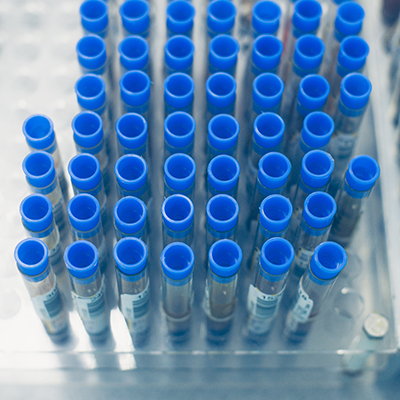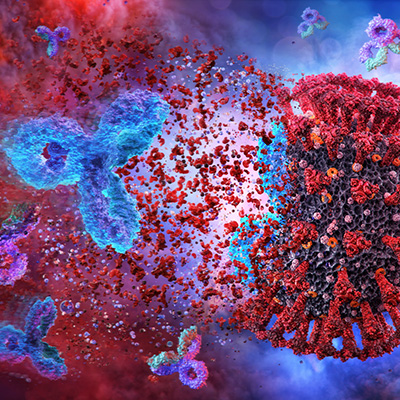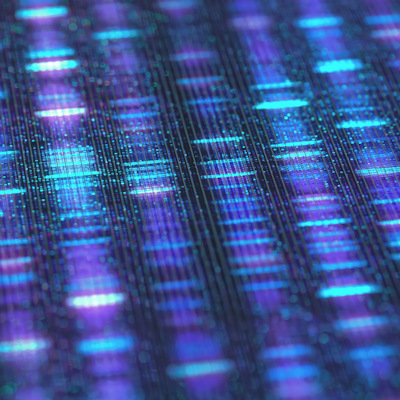October 8, 2020 -- What impact will mutation of the SARS-CoV-2 virus have on the effectiveness of COVID-19 vaccines that are in development? In a new study published in NPJ Vaccines on October 8, Australian researchers say they believe that a recent change in the genetic material of the virus shouldn't reduce the effectiveness of vaccines coming to market.
Although most vaccines have been developed based on the sequence of the initial "D-strain" of SARS-CoV-2 that has since been outnumbered by the newer "G-strain," new research finds that the new virus mutant does not impact the potency of vaccines under development.
Most COVID-19 vaccines currently under development target the trimeric SARS-CoV-2 spike glycoprotein. Recently, an amino acid change of aspartate to glycine at position 614 of the spike protein has resulted in a new predominant variant of the virus worldwide. In fact, since July 2020, the G614 -- aka "G-strain" variant -- accounts for 75% of published genome sequences that have been detected.
The D614G mutant (aspartate-to-glycine change at position 614) has structural advantages as an infectious agent over the previous strain, including being a better substrate for the S1 subunit of the furin cleavage domain. The D614G mutant has also been associated with increased transmissibility and viral loads, transduction of human cells, and pathogenicity leading to death.
Most vaccines were modeled on the original D614 -- aka "D-strain" -- (containing aspartate at position 614), which was more common among sequences published early in the pandemic. With the transition to a predominant G-strain, concern has arisen that this would negatively impact the efficacy of vaccines currently under development.
To test this theory, Australian scientists from the Commonwealth Scientific and Industrial Research Organization (CSIRO) studied blood samples from ferrets immunized with a vaccine candidate against SARS-CoV-2 strains that either possessed or lacked the D614G mutation. The researchers tested the vaccine against three strains of the virus (two D-strains and one G-strain).
The researchers found that SARS-CoV-2 vaccine candidate INO-4800 (Inovio Pharmaceuticals) elicited neutralizing antibody responses following vaccination in ferrets. Comparison of neutralizing titers against all three strains revealed that the D614G mutation has little impact on the neutralizing efficiency of the vaccine candidate.
Using molecular models, the researchers determined that the internal location of the 614 position makes it unlikely to influence neutralizing epitopes on the spike protein.
"This is good news for the hundreds of vaccines in development around the world, with the majority targeting the spike protein as this binds to the [angiotensin-converting enzyme 2 (ACE2)] receptors in our lungs and airways, which are the entry point to infect cells," said Seshadri Vasan, PhD, honorary chair in health sciences at the University of York and Dangerous Pathogens Team lead at CSIRO, in a statement. "Despite this D614G mutation to the spike protein, we confirmed through experiments and modelling that vaccine candidates are still effective."
The simulations of molecular dynamics do not support interference of increased replication efficiency by promoting elastase-mediated subunit 1/2 cleavage, as previously suggested. To the contrary, the team found that the G614-introduced cleavage site could not be accessed due to its buried location unless the S1 trimer cap and the S2 subunit of the spike protein are separate. In fact, the researchers suggest that the D614G mutation may actually destabilize the interaction between the S1 and S2 subunits of the spike protein.
The researchers noted that the experimental and biomolecular modeling approach that was used in the current study is widely available to many organizations and should be used to analyze the impact of mutations on vaccines. They also caution about premature inferences made on mutations before thorough experimental evidence has been established.
Do you have a unique perspective on your research related to vaccine development or virology? Contact the editor today to learn more.
Copyright © 2020 scienceboard.net









